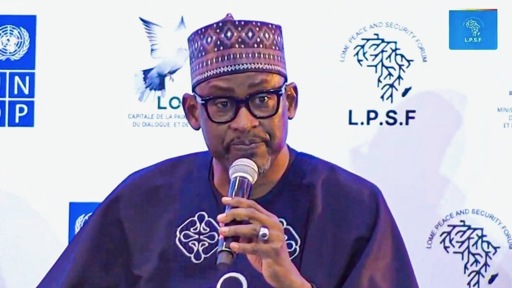The government of Mali has hit back at the US by imposing a reciprocal bond on visa issuance, requiring US nationals to deposit up to USD 10,000 for business and tourist visas to the Sahelian country.
Earlier on October 10, the US embassy in Mali announced, “Effective October 23, 2025, nationals of Mali who are otherwise found eligible for a B-1/B-2 business or tourist visa will be required to post a visa bond of up to $10,000 before the visa can be issued.”
Mali is among the seven countries on which the US has imposed a “Visa Bond Pilot Program”. All of them are African. “The pilot reinforces the United States government’s commitment to protecting America’s borders and safeguarding US national security,” said the embassy note.
It added that the reasons for inclusion on this list may include “high overstay rates, screening and vetting deficiencies, concerns regarding acquisition of citizenship by investment without a residency requirement, and foreign policy considerations.”
The latter appears most relevant in the case of Mali, where the regime of President Ibrahim Keïta, propped up by France, was ousted in a coup supported by mass protests in 2020. The popular military government went on to expel French troops in 2022.
After neighboring Burkina Faso and Niger went through a similar process and expelled French troops in 2023, the trio formed the Alliance of Sahel States (AES), which has emerged as a key anti-imperialist and pan-Africanist bloc, defying Western hegemony on the continent.
Read More: Niger hosts historic conference on the fight against neocolonialism in the Sahel
Mali’s foreign ministry said in a statement on October 11 that it “deplores the unilateral decision of the US” to impose the costly bond on its nationals, undermining “the Agreement on the Institution of a Long-Term Multiple-Entry Visa”, effective between the two countries since 2005.
“In accordance with the principle of reciprocity, Mali has decided to implement an identical visa program, imposing on US nationals the same conditions and requirements applied to Malian citizens,” the ministry added.
Trump hits Africa with “visa bond” program
So far, Mali is the only one to retaliate. Zambia, ruled by the government of President Hakainde Hichilema, condemned by his left opponents as a neocolonial agent serving the Western powers, was among the first countries whose nationals were slapped with the bond requirement.
“While the government of the United States of America has a prerogative to initiate policy changes, the Zambian government views this development with serious concern, given its potential economic implications on trade, investment, tourism, and people-to-people exchanges. This includes the unnecessary financial strain on Zambian Nationals,” its foreign ministry decried.
“The decision is contrary to the spirit of the meeting held with [the US ambassador] His Excellency, Mr. Michael C. Gonzales,” just over three months ago in July, where discussions “centered on exploring new pathways to deepen the enduring partnership between the two nations.”
Without announcing any countermeasures, the ministry went on “to assure the public that this matter is being treated with the urgency and seriousness it deserves”, and is engaging with the US “at the highest level” to “explore possible solutions”.
The bond requirement took effect on Zambian nationals alongside those from Malawi on August 20. The consular officer interviewing the visa applicant will determine if the bond amount will be five, 10, or 15 thousand dollars.
“The full visa bond amount will be returned if the applicant” departs the US on time before the visa’s expiry, according to the Bureau of Consular Affairs. However, the hefty amount imposed on nationals of some of the poorest countries effectively constitutes a travel ban for most.
Those who can afford the bond amount can enter and exit the US only through three designated airports: the Boston Logan International Airport, John F. Kennedy International Airport, and the Washington Dulles International Airport.
Gambia was subsequently added to the list, effective from October 11. From October 23, nationals of three countries other than Mali will also face this financial barrier to US entry: Mauritania, São Tomé and Príncipe, and Tanzania.
Tanzania’s government “would like to assure the public that it will continue … discussions with the US Government through diplomatic channels to find a solution,” its spokesperson said in a statement.
“The government of Tanzania insists that its relationship with the United States is built on a foundation of friendship, partnership, and mutual respect of long standing, and therefore this step will not change Tanzania’s intention to continue the good relationship with that country.”
With the reciprocal retaliation against the US, Mali has distinguished itself in this group of seven countries. Last week, its neighbor Burkina Faso, another member of the AES, also snubbed the US, rejecting President Donald Trump’s proposal to deport foreign nationals to the country as “indecent”, and refusing to give in to “blackmail” when the US embassy paused visa processing in an alleged retaliation.
Read More: Burkina Faso is a place of dignity, not expulsion: foreign minister snubs Trump’s deportation deal
The post Mali retaliates against US imposition of steep visa fees with reciprocal fees for US nationals appeared first on Peoples Dispatch.
From Peoples Dispatch via this RSS feed


